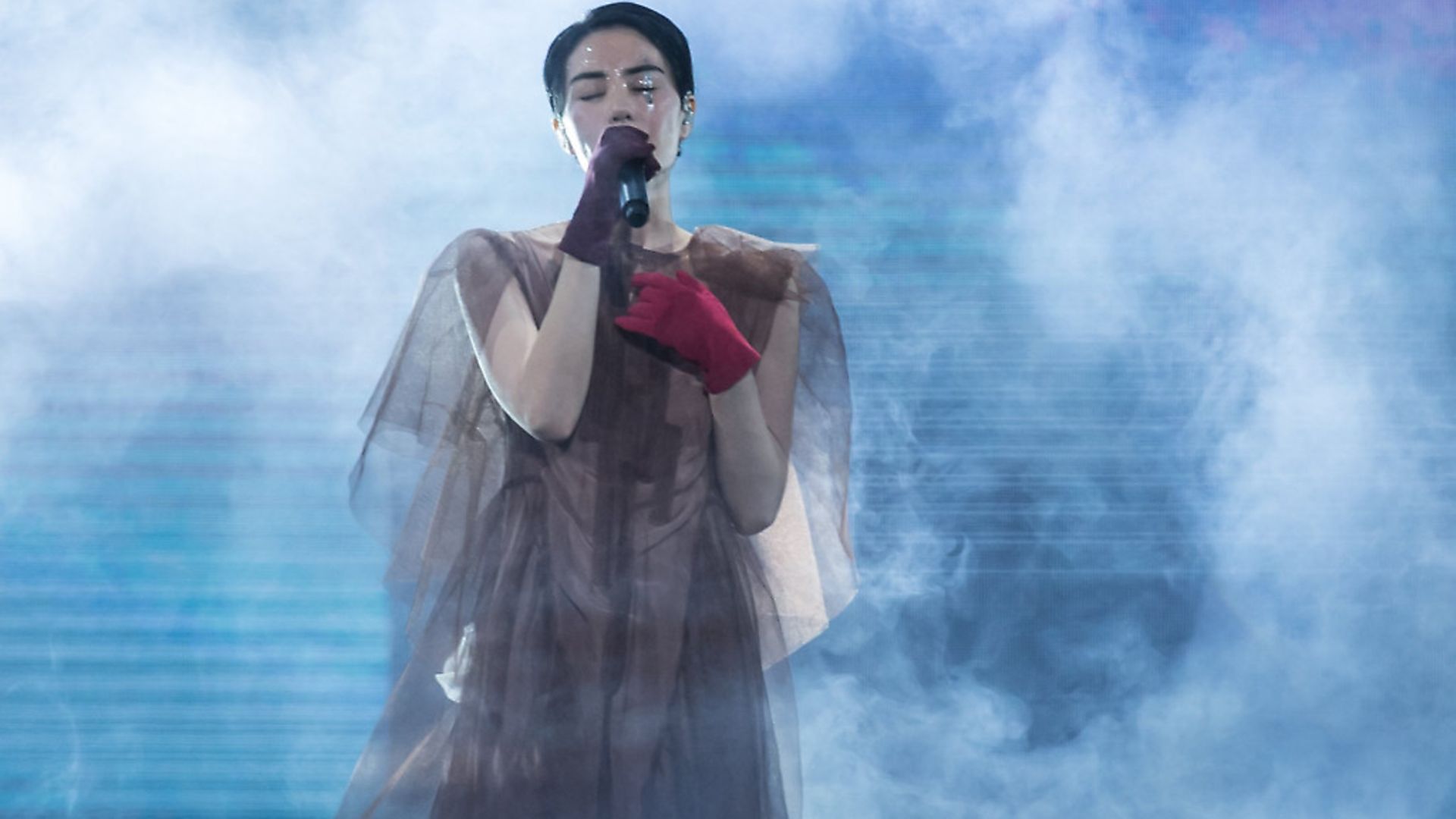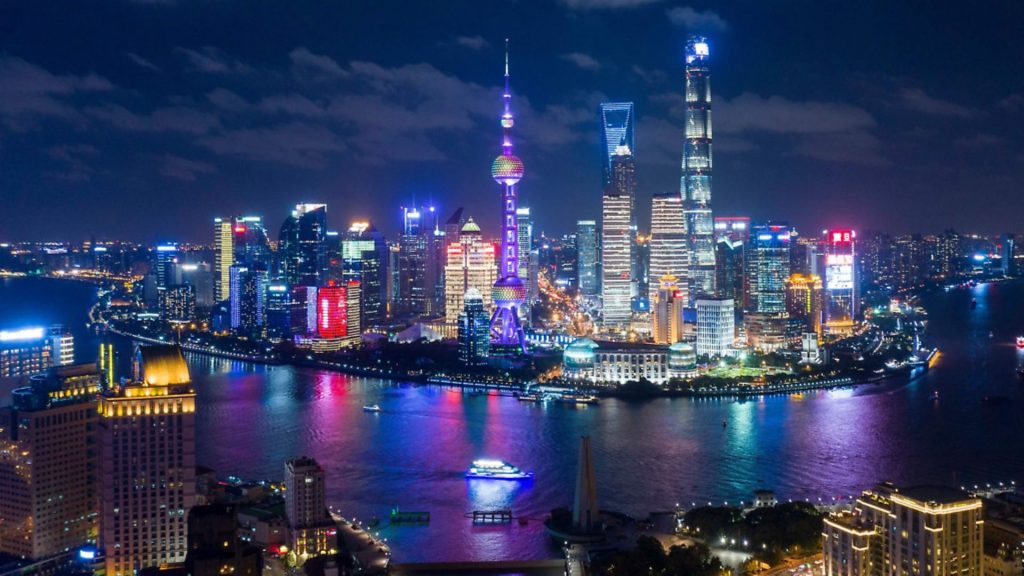
Once a byword for glamour and exuberance, the Chinese city was effectively silenced for much of the 20th century. But now it is becoming a centre for music publishing and distribution, says Sophia Deboick.

Few places have been subject to such a mix of cultural influences as Shanghai. Korea, Japan and Taiwan lie just across the sea, but when its port became a target for western governments seeking influence in the east in the 19th century, it became an international city. In the aftermath of the First Opium War the old Chinese walled city of Shanghai was engulfed by the British and American International Settlement and the French Concession and Shanghai became a magnet for both expat globetrotters and grindingly poor labourers from all over China. In the first half of the 20th century, Chinese pop would be born in the city, initially as Mandarin-language music (later christened “Mandopop”), but sparking a tradition of East Asian popular music that became adopted across the region.
The father of Chinese pop, composer and songwriter Li Jinhui, was born in Xiangtan, Hunan province, 200 miles from Shanghai. Aged 21 when the Republic of China was proclaimed in 1912, Li was from an educated family. His brother, the linguist and composer Li Jinguang, was Mao Zedong’s language teacher and the brothers would play a part in shaping a new, post-Imperial China in the hopeful 1920s, when the New Culture movement embraced the values of science and democracy.
Li Jinhui saw promoting Mandarin as the key to modernising a country where most people still used only their local dialect, and he believed entertainment was the most effective way to do it. He formed the touring Bright Moon Song and Dance Troupe, and although their childlike, didactic songs hardly seemed like the seed from which a new Chinese popular culture would grow, it would be where the greatest stars of China’s golden age of entertainment, of which Shanghai was the centre, got their start.
While Li’s troupe toured the country, jazz was establishing a foothold in Shanghai. The year after the Communist Party of China was founded in the city, Whitey Smith, a Danish-born San Franciscan drummer, arrived there and began playing a version of jazz adapted to the Chinese emphasis on melody.
Four years later, in 1926, pianist Teddy Weatherford, who would later take jazz to India, arrived in the city with the bandleader Jack Carter. Li Jinhui didn’t need much persuasion to adopt this new sound that was sweeping the globe, and the result was his song Drizzle (1927), released by the Shanghai-based Pathé Orient and sung by his 18-year-old daughter, Minghui.
This was the first Chinese pop song, and its use of Mandarin, as well as the very spectacle of a woman performing solo, were signs of the new values young idealists like Li were championing. The song marked the birth of shidaiqu – a fusion of American popular jazz and Hollywood film music and the distinctive vocal style and melodies of Chinese folk music – that would dominate Chinese pop into the next decade and beyond.
As the 1930s dawned, Shanghai became a jazz city for the cosmopolitan, international crowd and the wealthy minority of the Chinese population. The Canidrome, on what is today Central Fuxing Road, was a vast dog racing track built in 1928, but it also had a grand ballroom which became the centre of Shanghai’s nightlife.
When Teddy Weatherford brought jazz trumpeter Buck Clayton over to form a house band there in the mid-1930s, the Harlem Gentlemen, as they called themselves, became the hottest ticket in town. Later resident at the more downmarket Casanova ballroom on Avenue Edward VII, now part of Yan’an Road, Clayton joined the Count Basie Orchestra on his return to the States, but not before teaming up with Li Jinhui and schooling him directly in the jazz sensibility. Shidaiqu was poised to enter its golden age.
The nascent Shanghai-based Mandarin-language recording industry, with Li Jinhui as its premiere songwriter, created enduring musical legends in the 1930 and 1940s. The Seven Great Singing Stars, as they were dubbed, were the female superstars of Chinese pop, as well as of the growing Chinese film industry (Li’s adoptive daughter and former Troupe member, Li Lili, would also be one of China’s great early film stars).
All born between 1916 and 1922, this Seven were the dominant faces of Chinese pop culture from the late 1930s. The most famous of the Seven, Zhou Xuan, was dubbed “the Golden Voice”. She had had a rootless childhood before joining Li’s Troupe and finding fame in the 1937 film, Street Angel. Bai Hong, known as “the White Rainbow”, was married to Li Jinguang.
The Shanghai-born Gong Qiuxia had started out as a tap-dancing child performer before making her first film in 1936. Yao Lee was known as “the Silver Voice” to Zhou Xuan’s “Golden Voice”, and sang many songs by her tunesmith brother, Yao Min. The beautiful, Japanese-born Li Xianglan (née Yamaguchi Yoshiko) would be particularly successful in film, while Bai Guang (literally “White Light”) had a sultry-voice quite unlike those of the rest of the Seven. Wu Yingyin, meanwhile, defied her scientist parents to pursue a showbusiness career, getting her break by winning a singing competition at Ciro’s nightclub on Bubbling Well Road, Shanghai, and subsequently signing with Pathé.
Between them, the Seven Great Singing Stars produced the standards of Chinese popular song. Zhou Xuan’s songs from Street Angel (1937), The Wandering Girl Singer and Song of the Four Seasons, showcased her incredibly high, nasal tone. Night Life in Shanghai, from the 1947 film An All Consuming Love, where Zhou played the lounge singer wife of a murdered nationalist secret agent, captured the mystique of a city where “The bright lights go on, the cars roar, dance music leaps”. Yao Lee’s Rose Rose, I Love You (1940), written by Shanghai-born songwriter Chen Gexin, would later be covered by Frankie Laine and Petula Clark. Li Xianglan’s hypnotic Fragrance of the Night (1944) was written by Li Jinguang, while the mournful Waiting For Your Return (1948) made Bai Guang famous and, being very similar to the famous Sentimental Journey (1944), highlighted her similarity to Doris Day.
But these songs were recorded against a backdrop of chaos in Shanghai. Ongoing civil war between communists and nationalists was punctuated by the Battle of Shanghai of 1937 and the subsequent Japanese occupation. By 1943 most ex-pats had left the city and Shanghai’s party was over. With the founding of the People’s Republic of China in 1949 the Canidrome became an execution site and shidaiqu music was banned.
Pathé and most of the Seven Great Singing Stars upped sticks for the safety of British-held Hong Kong. Li Xianglan was arrested as a Japanese collaborator but later escaped, first to Japan, where she worked with Kurosawa, and later to Hollywood. Zhou Xuan died in a mental asylum aged only 37 during the anti-rightist purges of the late 1950s. Chen Gexin died during the Great Chinese Famine, while Li Jinhui himself, already finding his songs criticised on many sides as “yellow music” (in other words, pornographic), died in prison at the outset of the Cultural Revolution. Shanghai – once so inviting – was closed, the creators of the music that had once been a byword for glamour and exuberance were scattered or dead.
But in the 1970s, Shanghai was central to the slow opening up of China, and shidaiqu made a comeback. Premier Zhou Enlai and president Richard Nixon met in the city in 1972 and signed the Shanghai Communiqué which began a normalisation of relations. By the end of that decade, pop music – so often the canary in the coalmine for freedom of expression – resurfaced after decades of communist cultural stranglehold.
In 1978, the commercial Shanghai Audio Visual Company was founded when the monopoly of the state-run China Record Corporation was ended, and the same year Taiwanese singer Teresa Teng, who became the biggest popular star in China before her untimely death in 1995 aged just 42, covered songs like Zhou Xuan’s When Will You Return? (1937) and Li Xianglan’s Fragrance of the Night, as well as reviving many of Li Jinhui’s songs. These heavily nostalgic renderings of songs associated with a pre-communist past were a strong signal of the loosening of censorship.
Teng’s covers were the last hurrah of a distinctive Shanghai style as the Cantonese-language “Cantopop” developed in Hong Kong, and Taiwanese, Japanese and South Korean influences came to bear on an increasingly shared East Asian pop music culture.
By the 2000s Shanghai had become a centre for music publishing and distribution, but Beijing was the recording centre for Chinese pop, where stars like Faye Wong demonstrated the diversity of “C Pop”, recording in both Cantonese and Mandarin and often incorporating elements of non-pop musical styles into their work. But today’s Mandopop could not have existed without Li Jinhui and the stars of the 1930s and 1940s, and a direct line can be drawn from 1927’s Drizzle, where rain was used as a wistful metaphor for frustrated love (“Drizzle and rain, don’t be such a pain”) to Wong’s Sky, (1994), a Chinese karaoke favourite, which asks, with similar sentiments, “Why is my sky dripping wet tears?”










